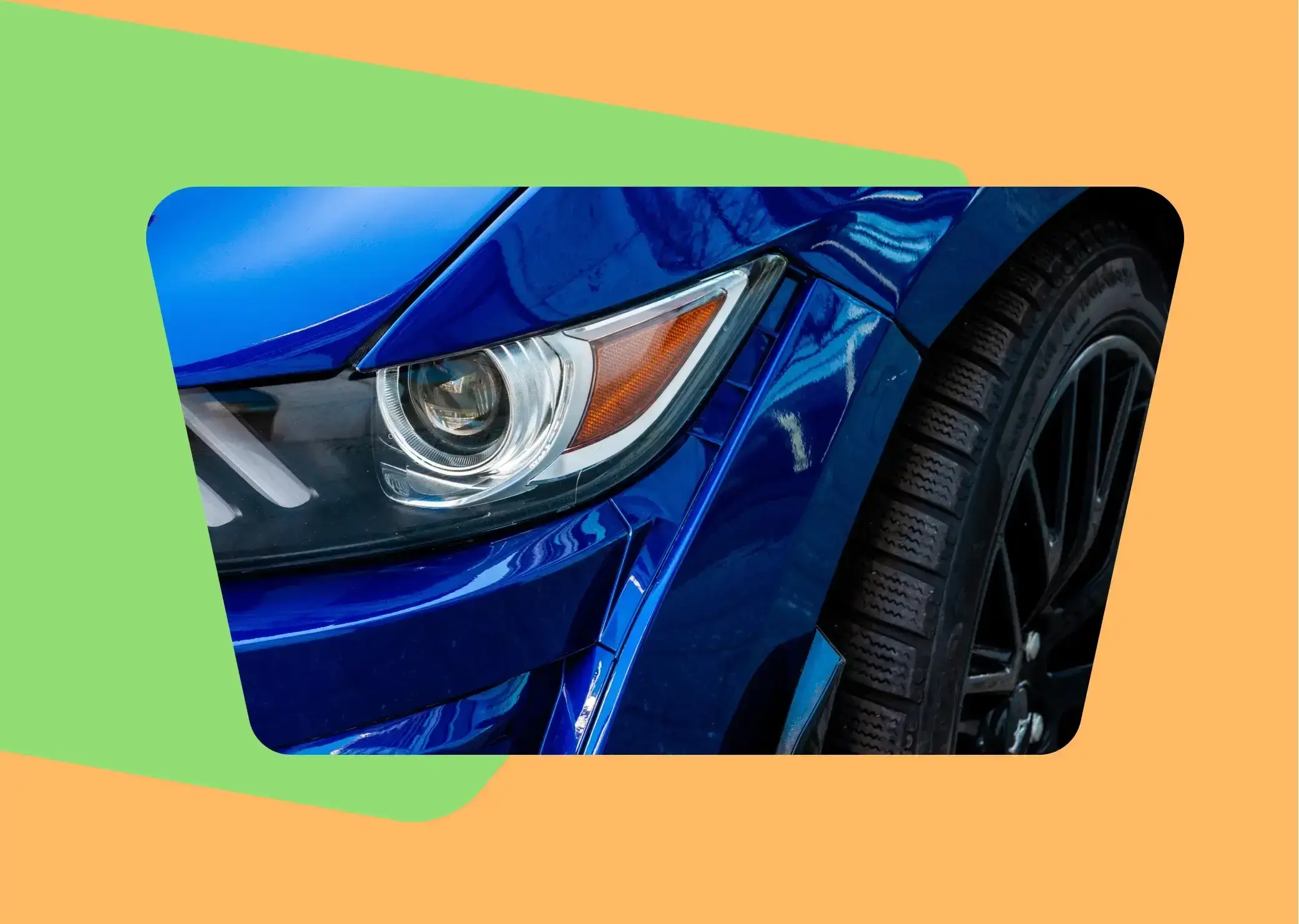- Carmoola
- Blog
- Car Finance
- How does personal contract purchase (PCP) finance work?
- 🗞 Car Finance
- Last updated: Jun 3, 2022
- 12 Min Read
How does personal contract purchase (PCP) finance work?
Written by

Verified by


See how much you can borrow in 60 seconds
| Representative Example | |
|---|---|
| Loan amount | £10,000 |
| Interest rate | 13.9% APR |
| 54 payments of | £246 |
| Total cost of credit | £3,284 |
| Option to purchase fee | £1 |
| Total payable | £13,285 |
Personal Contract Purchase (PCP) is a popular way to finance buying a car without having to pay for it upfront. It allows you to spread the cost of the vehicle over a set period, typically between two and four years, with the option to either buy the car outright at the end, return it and walk away, or use any positive equity towards a new car.
PCP deals offer flexibility and lower monthly payments compared to some other finance options, making them an attractive choice for many drivers. Here, we’ll explain how it works and what you need to know about the benefits, potential downsides, and how PCP compares to other car finance options like Hire Purchase (HP), car loans, and leasing.
How does PCP finance work?
PCP financing has three stages:

1. Deposit
When you take out a PCP agreement, you'll need to put down an initial deposit, usually around 10% of the car’s purchase price. This amount can vary depending on the deal, but the larger your deposit, the lower your monthly payments and final balloon payment (don’t worry, we’ll get to that) will be.
2. Monthly Payments
After paying your deposit, you'll make monthly payments for the agreed term of the contract. These payments are based on the car’s depreciation—the difference between its current value and the Guaranteed Minimum Future Value (GMFV) at the end of the term.
Because you're not paying for the full value of the car, but the difference between its current value and the GMFV, monthly payments can be lower than with other financing options.
3. Final Balloon Payment
At the end of your contract, you have three choices:
- Buy the car: If you decide you want to keep the car, you'll need to pay a final lump sum, known as the balloon payment. This is the amount left after your deposit and monthly payments have been deducted from the GMFV.
- Return the car: If you don’t want to keep the car, you can simply return it to the dealer and walk away.
- Use any equity as a deposit: If the car is worth more than the GMFV (meaning that you have positive equity), you can use that extra value as a deposit towards a new car on a fresh PCP agreement.
Let’s take a look at an example:
- Car price: £15,000
- 10% Deposit: £1,500
- Finance amount: £13,500
- GMFV (predicted value in 3 years): £9,000
Your monthly instalments will cover the difference between £13,500 and the £9,000 predicted value, so given your £1500 deposit, your monthly payments would total £4,500 (plus interest based on the finance amount). At the end of the agreement, you can either pay £9,000 to buy the car, hand it back, or, if the car is worth more than £9,000, use that equity towards a new deal.
Key features of PCP finance
Sounding good so far? Let’s sum up some of the key features next.
You’re the registered keeper, not the owner
You’ll have full use of the car but will need to take care of running costs (fuel, insurance, and upkeep).
Flexible terms and clear GMFV
With PCP, you’re given a guaranteed value of the car at the end of the term, which can help with future financial planning. If the car is worth more than the GMFV, you can use the extra value for a new deposit.
Mileage and condition restrictions
You’ll likely have limits on how many miles you can drive each year, and the car must be kept in good condition. This makes PCP less ideal if you’re planning to take long road trips or modify the car.
Pros and cons of PCP finance
Pros
- Lower monthly payments than hire purchase or loans.
- Flexibility at the end of the agreement. You can choose to keep, return, or trade in your car.
- The option of a new car every few years.
Cons
- You’re not the car’s legal owner unless you pay the balloon payment at the end.
- You may face extra charges for damage or excess mileage.
- If you miss payments, you could lose the car and affect your credit rating.
Comparison with other options
|
Personal Contract Purchase (PCP) |
Hire Purchase (HP) |
Personal Loan |
|
|
No deposit required |
|
|
|
|
Car is yours at the end of the agreement |
Optional |
|
|
|
Fixed monthly payments |
|
|
|
|
No (final) balloon payment |
|
|
|
|
No excess mileage charges |
|
|
|
|
Secured against |
|
|
|
|
Available on Carmoola |
|
|
End of PCP agreement
As you near the end of your PCP agreement, the lender will arrange for an inspection of the car to check its mileage and condition. If the car has excessive wear and tear or you’ve exceeded the mileage limit, you might be charged an additional fee. These charges should be clearly outlined in your agreement, so you can prepare for any potential costs.
At the end of your agreement, you have three options:
- Pay the final balloon payment to become the legal owner of the vehicle.
- Return the car to the dealer, walking away with no further commitments.
- Use any positive equity (if the car is worth more than the GMFV) towards a deposit for a new car.
Is PCP right for you?
PCP finance is a good option if:
- You want lower monthly payments and don’t mind not owning the car right away.
- You’d like to have flexibility at the end of the agreement.
- You prefer driving a new car or changing cars every few years.
- You can keep the car in good condition and stick to the mileage limit.
However, it might not be the right choice if:
- You want to own the car outright at the end of the agreement.
- You drive a lot of miles, or do long-distance trips.
- You want the freedom to modify your car, as most PCP agreements don’t allow modifications.
FAQs about PCP car finance
Is it better to own a car or have a PCP agreement?
Car finance isn’t a one-size-fits-all, and individual preferences and circumstances are all-important. Ownership might be the better choice for you if you plan to keep the same car for several years, enjoy being a car owner, and don’t want to worry about mileage restrictions.
On the other hand, PCP might suit you better if you like to change cars regularly, don’t want to think about the car losing its value or having to sell it in the future, and tend to drive a similar number of miles each year.
Is HP or PCP better?
HP might be better if you want to own the car at the end of the term, plan to keep it for several years, or if you drive long distances. PCP could be a better choice if you prefer lower monthly payments and the flexibility to decide whether to keep the car or not.
Can I use my vehicle for business purposes?
Your PCP agreement will detail whether or not you’re able to use the car for business, but bear in mind that business travel might add up towards your mileage limit or other conditions on your agreement.
Can you finance the final balloon payment on PCP?
What do I need to apply for PCP finance?
See how much you can borrow in 60 seconds
| Representative Example | |
|---|---|
| Loan amount | £10,000 |
| Interest rate | 13.9% APR |
| 54 payments of | £246 |
| Total cost of credit | £3,284 |
| Option to purchase fee | £1 |
| Total payable | £13,285 |
Related articles
What are the top 5 used car websites in the UK?
Thanks to the internet, searching for a used car in the UK is easier than ever before. You can simply head online, visit a used...
Hire purchase or leasing? Key differences and what to choose
When you’re choosing between hire purchase and leasing, the key difference is whether you want to own the car or if you prefer...
Can you get car finance without a driving licence?
Yes, some lenders offer car finance without a driving licence, but Carmoola requires a full UK driving licence to complete an...

.webp?width=832&height=592&name=customer-support%20(1).webp)












.webp?width=400&height=285&name=online-shoppers-with-dog%20(1).webp)


.jpg?width=500&height=356&name=Vintage%20car%20going%20to%20an%20old%20town-1%20(1).jpg)





